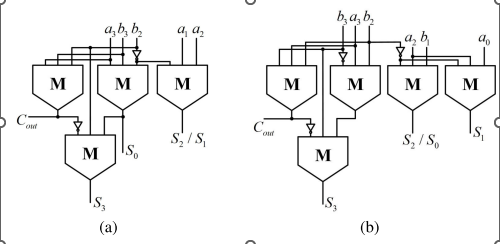Efficient Design of Majority-Logic-Based Approximate Arithmetic Circuits
Also Available Domains Xilinx ISE
Objective
This paper presents an overview of the steps involved in designing efficient majority-logic-based approximate arithmetic circuits and highlights some of the key challenges and opportunities in this field.
Abstract
Majority-logic-based approximate arithmetic circuits have emerged as a promising alternative to traditional arithmetic circuits, as they offer a trade-off between accuracy and power consumption. To design efficient majority-logic-based approximate arithmetic circuits, several steps need to be taken, including determining the precision requirements, choosing the approximation technique, designing the circuit architecture, optimizing the circuit, and verifying the circuit. This paper presents an overview of the steps involved in designing efficient majority-logic-based approximate arithmetic circuits and highlights some of the key challenges and opportunities in this field. The paper also discusses some recent advances in the design of efficient majority-logic-based approximate arithmetic circuits and their potential applications in machine learning and image processing.
NOTE: Without the concern of our team, please don't submit to the college. This Abstract varies based on student requirements.
Block Diagram

Specifications
· Modelsim, Xilinix ISE 14.7
· MATLAB
· HDL: Verilog
Learning Outcomes
- Basics of Digital Electronics
- VLSI Design Flow
- Introduction to Verilog Coding
- Different modeling styles in Verilog
o Data Flow modeling
o Structural modeling
o Behavioral modeling
o Mixed-level modeling
- Introduction to adder design
- Knowledge of adders, gates
- About approximation computation
- About error reduction
- About approximate adders
- About constant truncation
- Applications in real-time
· Tools for design and simulation
· Generation of Netlist
· Solution providing for real-time problems
· Project Development Skills:
o Problem Analysis Skills
o Problem-Solving Skills
o Logical Skills
o Designing Skills
o Testing Skills
o Debugging Skills
o Presentation Skills
o Thesis Writing Skills





 Paper Publishing
Paper Publishing
